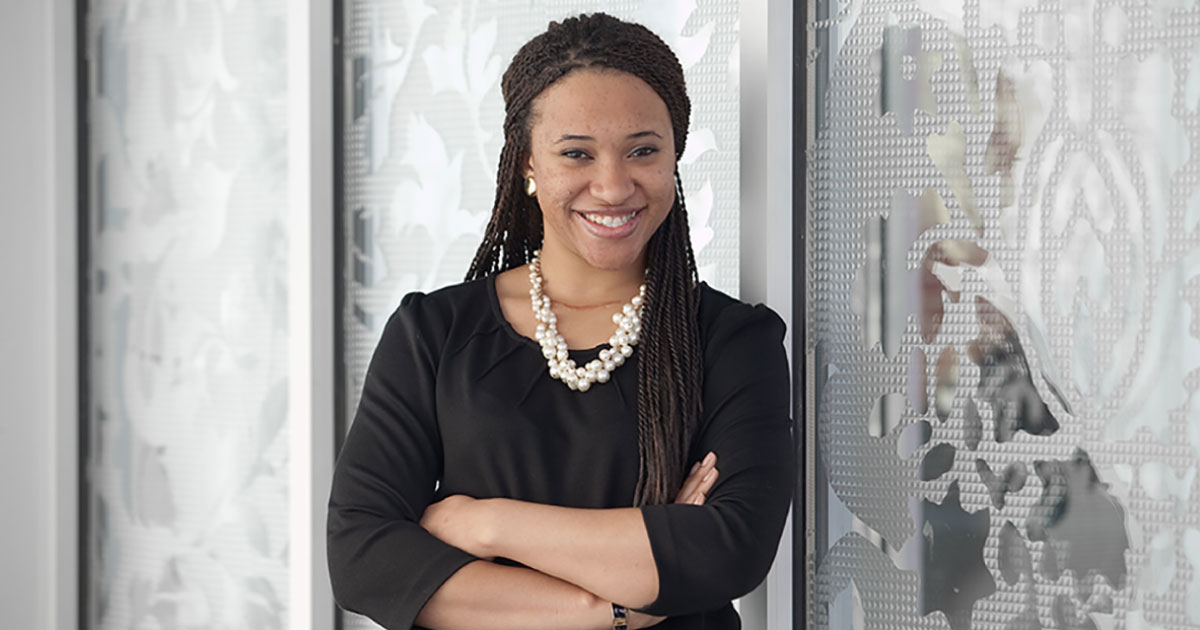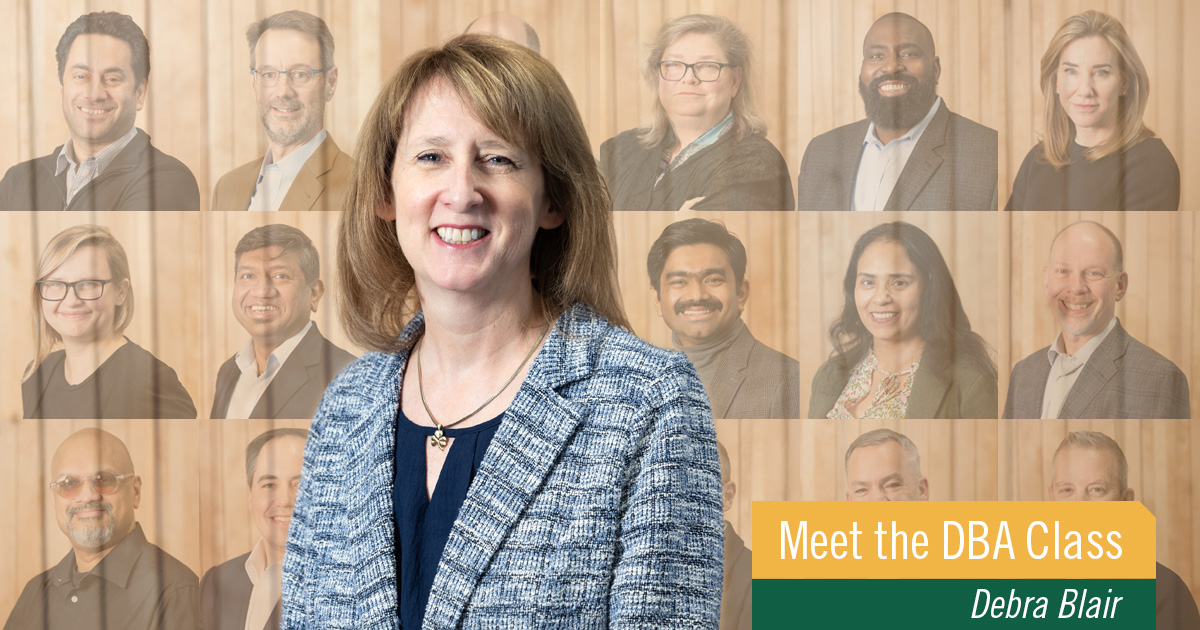Bringing an Entrepreneurial Mindset to Diversity and Inclusion

Katrina Fludd ’08, MS’10 is on a mission. Her charge? To disrupt the way organizations think about diversity and inclusion.
“Diversity and inclusion has gotten stale,” she says. “The way we talk about it, the way we teach about it. People are searching for tools and language to use, but having a hard time stepping out of their comfort zone.”
That’s where Fludd comes in. By day, she’s a senior diversity and inclusion specialist at Princeton University, consulting with departments across campus to create and implement custom strategic diversity and inclusion plans. By night, she is developing a brand that helps organizations step further out of their comfort zones in order to create more value from diversity, equity and inclusion. “It will be a dynamic mashup of IDEO, VOGUE and a sprinkle of ‘Tidying Up with Marie Kondo’”.
But her mission doesn’t end there. She’s the new president of Babson’s Black Affinity Network (BAN), and she’s bringing her entrepreneurial approach to diversity and inclusion to lead the network into Babson’s second century and beyond.
“I’m really excited to be in this role,” says Fludd. “It’s the perfect opportunity to serve my community and culture at a time when the world needs our talent and voices the most.”
Design Thinking for Diversity
Fludd’s work—both in her full-time career and her BAN leadership role—centers around leveraging design thinking as a critical tool for disrupting how organizations approach diversity and inclusion.
“I help people use entrepreneurial methods—a lot of what I learned at Babson—to implement these initiatives,” she says. “There are so many assumptions around what it means, and that isolates folks or keeps efforts static. Design thinking allows for shifting mindsets versus only planning events, while ensuring that we are asking the right questions, lessening and removing bias, and painting a different picture about what inclusion and belonging actually means. This allows for more innovative, and sustainable social, and economic value creation.”
In her new role as president of BAN, she’s eager to partner with members of the community to integrate belonging, equity, diversity and inclusion across the Babson life cycle—both inside and outside of the classroom. “A paradigm shift is needed where we double down on what inclusion means for the entrepreneurial mindset—from before day one.”
That’s already happening in so many ways—BAN mentors prospective undergraduate students, capturing valuable insights and providing support, and brings in entrepreneurs of all kinds to be subjects of a more diverse set of academic case studies, for example. But Fludd aims to elevate the network’s participation and integration with all aspects of campus life. She aims to leverage BAN’s established territories across the country—Chicago, Los Angeles, Miami, Atlanta, DC Metro, New York, and Boston—to take advantage of existing entrepreneurial ecosystems and create new ones that provide great opportunities for students, faculty, and alumni. In June, the BAN Leadership Retreat takes place in Chicago with keynote by Babson Trustee Eric Johnson ’72 P’08.
The 2019 Black Affinity Network Conference
Fludd’s other priority: elevating the Black Affinity Network Conference, one of BAN’s signature events.
The 2019 conference, themed “Blacks in Entertainment,” featured a packed lineup of the media and entertainment industries’ pioneering professionals who will reflect on the unique contributions and achievements of black professionals across music, film, radio, television, and more.
The highlight of that star-studded lineup: keynote speaker Cathy Hughes, founder and chair of Urban One, the largest African-American–owned and –operated broadcast company in the nation.
She was joined by Vivian Scott Chew and Ray Chew of Chew Entertainment; Lynn Scott of Hitco Entertainment; Dyana Williams of Radio One; Ayiko Broyard of Walton Isaacson; Marissa Nance of Native Tongue Communications; Adrienne S. Alexander, Esq.; Shelley Tabor of ESPN; and Nitiya Walker ’14, a media professional and founder of Seeds of Fortune, a scholars program creating the next generation of financially empowered young women of color.
Centennial and Beyond
Fludd is most excited about the opportunity to continue conversations in the Babson community and beyond about what diversity and inclusion means for creating social and economic value everywhere in our second century.
“People may have known me as a student, as an administrator,” she says. “But as an alumna, I’m hoping to show up in a way that is inspiring and collaborative. The Black Affinity Network is a place where you can ask questions, organize, explore, and flex the innovation and curiosity that Babson teaches. It’s a really exciting opportunity to take diversity and inclusion ‘thought’ into more ‘action’.”



